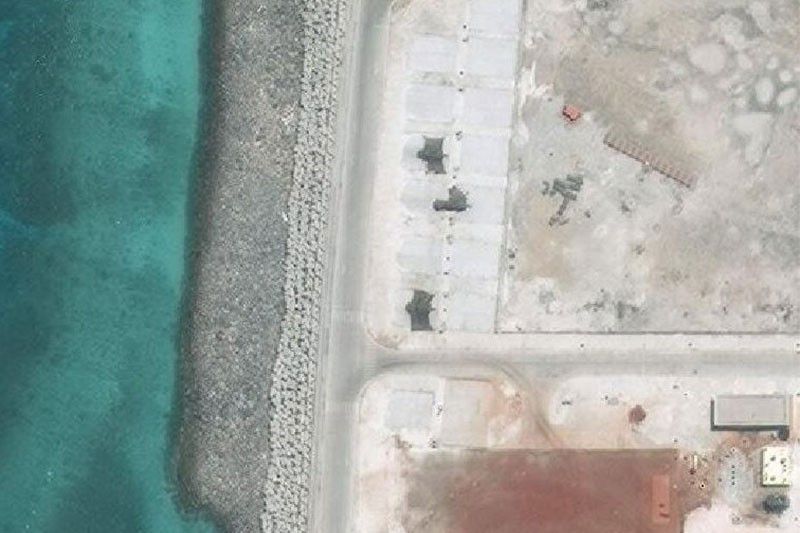Duterte urged to rethink foreign policy amid China's missile deployment

MANILA, Philippines — President Rodrigo Duterte should revisit his foreign policy following reports that China has installed anti-ship cruise missiles and surface-to-air missiles in the Spratly Islands, an independent think tank said Friday.
Manila-based think tank Stratbase ADRi said Beijing's installation of weapons on Fiery Cross, Mischief and Subi Reefs should be a wake-up call for the Duterte administration.
Stratbase ADRi President Dindo Manhit said that China's recent actions further escalate tensions in the region and presents a situation for the government to find other ways of dealing with the situation.
"The most common rationale cited—we are militarily not in a good position to wage war against Beijing—should not be license to kowtow to China’s every whim. After all, the threat of the use of force constitutes a violation of the United Nations Charter," Manhit said.
The think tank noted that Duterte's decision not to choose sides to prevent being caught in between China and other superpowers should not be the only option.
Vietnam, for instance, has called on China to remove its missile installations, saying that it violates Hanoi's sovereignty, increases tension and destabilizes the region.
READ: Vietnam asks China to withdraw missiles from South China Sea
"The pivot to Beijing away from the country’s more traditional allies needs to be revisited while exhausting all available mechanisms for unilateral, if not global, cooperation," Manhit said.
Manhit also lamented that Beijing's militarization continued unchallenged when the Duterte administration set aside the July 2016 arbitral ruling on the South China Sea dispute, which ruled in favor of the Philippines.
Duterte instead opted to hold a bilateral consultation mechanism with China and push through with the negotiations on a Code of Conduct in the South China Sea with the Association of Southeast Asian Nations.
The foreign policy analyst noted that allowing China to continue militarization or risk going to war are not the only options.
Manhit suggested that the administration should "approach the situation from a position of power, not weakness."
"Geopolitical experts focused on the developing scenarios during the ADRI forum featuring a special paper authored by one of its trustees, Dr. Renato C. De Castro, 'Revival of the QUAD and the Emergence of the Indo-Pacific Region as the 21st Century Geopolitical Region,'" the think tank said.
The so-called Quad is an informal security association among the United States, Japan, India and Australia.
In the midst of the Quad's revival, De Castro said that small states like the Philippines can "rally the support of other 'major powers' and use our common maritime interests to counter China’s pervasive influence and assertiveness."
RELATED: 'To verify' or 'can't verify?' Malacañang shifts rhetoric on Chinese missiles
- Latest
- Trending





























